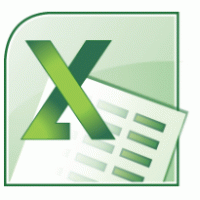 Back to jkp-ads.com |
Ron de Bruin
|
|
 Back to jkp-ads.com |
Ron de Bruin
|
|
Ron de Bruin decided to remove all Windows Excel content from his website for personal reasons. If you want to know why, head over to rondebruin.nl.
Luckily, Ron was kind enough to allow me to publish all of his Excel content here.
Most of these pages are slightly outdated and may contain links that don 't work. Please inform me if you find such an error and I'll try to fix it.
Kind regards
Jan Karel Pieterse
When you want to run a macro from an event or from another macro in the
same workbook you can call the macro like this in your code :
Call YourMacroName
You do not have to
use Call but I think it is clearer when you read the code that another macro
is called.
But what if you want to run a macro that is in another
workbook or Add-In(File or add-in must be open).
We can use
Application.Run if we want that like this :
Application.Run "Book1.xls!MyMacroName"
If the workbook name
includes spaces or some other particular characters it is necessary to
enclose the name with single quotes, like this :
Application.Run "'Book 1.xls'!MyMacroName"
It does not do any harm to use the single quotes even if not needed, and
always include them if the workbook name is not known in advance, for
example if the workbook name is a variable like this
Application.Run "'" & strFileName & "'!MyMacroName"
Note: If your workbook name contains apostrophe (')
characters, such as in "Joe's Workbook.xls", then you need to double-up the
apostrophes like Application.Run "'Joe''s
Workbook'!MyMacroName"
But what if you use Excel 2007-2016 and use custom Ribbon controls with
callbacks.
A normal macro looks like this :
Sub TestMe()
MsgBox "Hi there"
End Sub
And a callback looks like this :
Sub TestMe(control As IRibbonControl)
MsgBox "Hi there"
End Sub
You will notice that the Application.Run examples above will not work
when you want to run a callback in another workbook or Add-in. Also
Call MyMacroName will not work to call a callback in the same
workbook.
But we can do this to call a callback in the same workbook
:
Sub test1()
Dim obj As Object
TestMe obj
End Sub
Or to call a callback in an add-in or another workbook use :
Sub test2()
Dim obj As Object
Application.Run "'RDBMerge.xlam'!RunRDBMergeForm", obj
End Sub
Note: Instead of a object you can also use IRibbonControl like this :
Sub test3()
Dim IRCdummy As IRibbonControl
TestMe IRCdummy
End Sub
Before you try to run the Application.Run line that call a macro or callback in another workbook or add-in you can test if the workbook or add-in is open with the code below.
Sub ErrorTest()
Dim TestWkbk As Workbook
Dim obj As Object
Set TestWkbk = Nothing
On Error Resume Next
Set TestWkbk = Workbooks("RDBTestAdd-in.xlam")
On Error GoTo 0
If TestWkbk Is Nothing Then
MsgBox "Sorry the File is not open, it is not possible to run the macro." & _
" But you can add code here to open the workbook or add-in."
Else
MsgBox "Use one of the two lines below to call the callback or macro"
'Run a callback in a Excel 2007-2016 workbook/add-in
'Application.Run "'" & TestWkbk.Name & "'!RunMyMacro", obj
'If you want to run a macro in a Excel 97-2016 workbook/add-in use
'Application.Run "'" & TestWkbk.Name & "'!RunMyMacro"
End If
End Sub
Tip: You could replace the MsgBox that says that the file is not open
with code that opens the workbook/add-in. Set TestWkbk
= Workbooks.Open("C:\YourPathToTheAddin\RDBTestAdd-in.xlam")
Do
not forget to check if opening the file was succesful in the code before you
try to call the macro or callback.
Another way to test if a workbook/add-in is open is to call a function like this with as argument the workbook name that you want to check.
Function IsOpen(WBname As String) As Boolean
Dim wb As Workbook
On Error Resume Next
Set wb = Workbooks(WBname)
If Err = 0 Then IsOpen = True
End Function
But how do we use this function if it is not in the same workbook, you
can use this to check if there is a file named RDBMerge.xlam open.
Dim MyResult As Boolean
MyResult =
Application.Run("'" & TestWkbk.Name & "'!IsOpen", "RDBMerge.xlam")
Or use this to call a macro/function with arguments
Application.Run "'" & TestWkbk.Name &
"'!MacroNameHere", "parm1", "parm2"
Many thanks to Peter Thornton, Jim Rech, Dave Peterson and Mike Rosenblum for their useful comments.